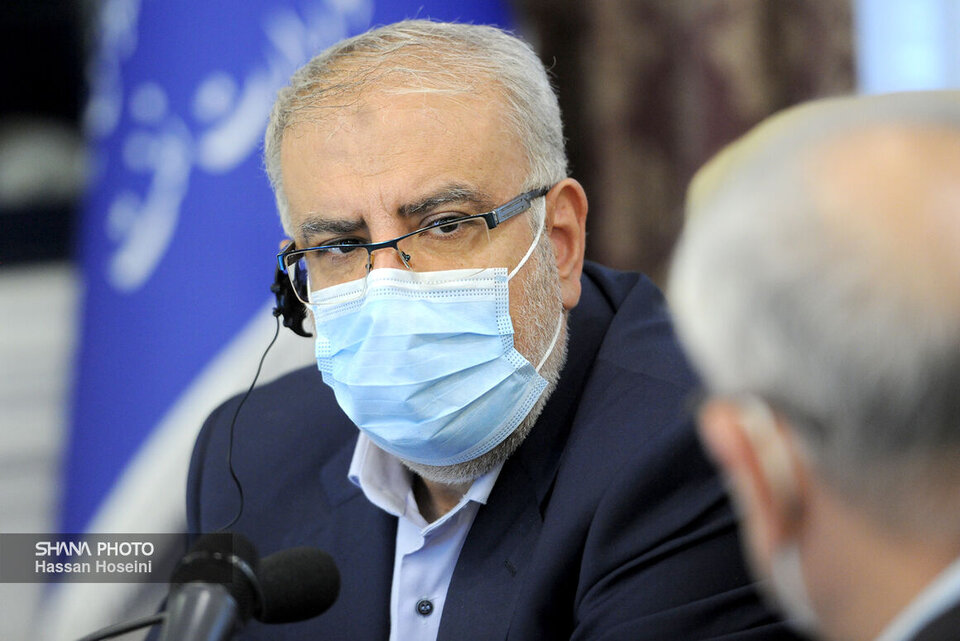"We hope that with the efforts of colleagues in this sector, we will reach higher figures in the field of export of crude oil, gas condensate and other petroleum products and petrochemicals during the calendar year of 1401, he told a televised conversation via telephone on Thursday.
“By taking effective measures in onshore and offshore oil fields, drilling new wells and workovers, reconstruction and modernization of facilities, oil collection centers, the country’s crude oil production capacity has reached the pre-sanctions level which is 3.8 mbd,” he said.
He added: "In the gas sector, with the good measures taken by the National Iranian Oil Company (NIOC) and National Iranian Gas Company (NIGC) in the winter, the highest figure of gas production from the South Pars joint field was 705 million cubic meters per day."
Regarding the reasons for enhanced oil sales, the Minister said: "With strong will, identifying customers and new markets, strong marketing, using different methods in oil contracts and using committed and specialized forces in this field, this happened and the sale of crude oil and gas condensate has reached high figures.”
Asked if the Ministry of Petroleum had any plans to sell more oil, Mr. Owji said: "Yes, oil export capacity, especially gas condensate, was low last year, and we hope that with the efforts of our colleagues in this sector during [the calendar year of] 1401 [which started on March 21] we will obtain higher figures in the field of exporting crude oil, gas condensate and other petroleum products and petrochemicals.”
He noted: "Today, in the 27th ministerial meeting of the member countries of the OPEC+ Coalition, the members agreed to keep last month's decision and increase production by 432,000 barrels per day for May."
The Minister of Petroleum continued: "The daily increase of 32,000 barrels compared to the figure set for last month was considered and all members agreed with this decision and it was decided that the members of OPEC+ should closely monitor the conditions of the global oil market."
"Political and security tensions in the world's oil-rich regions have raised concerns, but rising oil prices are being monitored by OPEC+ experts," Owji said.


Your Comment